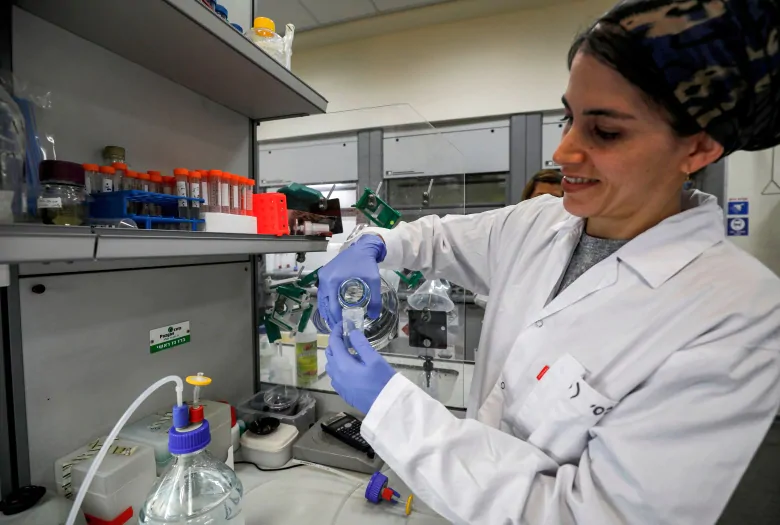Canadian and international scientists racing to develop a potential vaccine face a long road.

Medical researchers are working on multiple approaches to experimental vaccines to protect against COVID-19.
The federal government announced $2.7 million in funding for vaccine candidates.
Internationally, the Coalition for Epidemic Preparedness Innovations (CEPI), a partnership between public, private, philanthropic, and civil organizations, is investing more than $23 million US in the development of new vaccines against COVID-19.
France’s president has announced a video summit of G7 leaders on Monday to discuss co-ordinating research on vaccines and treatments as well as an economic response to the pandemic.
A vaccine would prevent the pandemic from spreading as fast as it is now, said Charu Kaushic, scientific director of Canadian Institutes of Health Research‘s Institute of Infection and Immunity.
“It’s just spreading everywhere,” she said. “If we had a vaccine, we could control it.”
Kaushic said instead of putting all its eggs in one basket, CIHR is funding multiple projects in the hopes that at least one of them will work.
2 elements to a successful vaccine
To work, a vaccine needs to succeed in getting our immune system to produce antibodies in the blood. The antibodies recognize, remember and defend against the virus if you’re exposed to it.
Kaushic, an immunologist and HIV vaccine researcher at McMaster University, said because COVID-19 is a lung infection, any vaccine needs to protect specifically against the virus getting into the lungs.
“Vaccines can fail because you can get very good antibodies and other things that work great in the blood, but not in the lungs. “You may not get protective immunity at all.”

Viruses, especially new ones, are particularly

